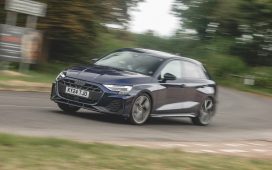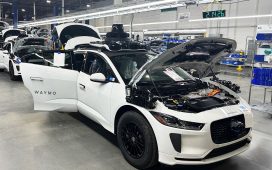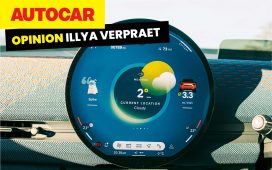Stanlee Kelly, Technical Director at Crystal EV, discusses why UK Fleet Managers should transition to electric vehicles sooner rather than later.
As the UK continues to electrify its infrastructure, forward-thinking Fleet Managers are finding themselves at a crossroads. The decision to transition fleets of company cars or vans to electric vehicles (EVs) is no longer a distant possibility but a pressing reality. Yet the capital cost of expensive new EVs along with concerns about charging infrastructure at the office, depot and out on the road, often make it a subject pushed onto the back burner.
Yet transitioning to an electric fleet should not be seen as just an inevitable expense on the horizon; it can be a strategic move to future-proof business, lower running costs, meet forthcoming regulatory compliance, and enhance corporate image.
Like implementing any new technology across a large business, there are hurdles and challenges to overcome in electrifying a fleet. The largest of these is often the toughest to overcome at board level; upfront capital outlay. There is no getting away from the fact that electric cars and vans cost significantly more than their petrol or diesel equivalent and, for offices with staff on-site and van depots, the additional expenses of installing on-site charging facilities.
Yet the lower longer-term running costs alone should offset the outlay over the life of the vehicle, even without the many local and government incentives and grants currently available to help with the electrification of corporate transport.
For example, UK businesses transitioning to electric vans can benefit from the Plug-in Van and Truck Grant (PIVG), where eligible vehicles are discounted by £2,500 for small vans up to £25,000 for larger trucks at the point of purchase.

Photo by Kindel Media: https://www.pexels.com/photo/close-up-shot-of-an-electirc-car-charging-9799729/
For businesses looking to install fleet charging facilities at their premises, the upfront cost, disruption, and ongoing maintenance have all improved dramatically in the last few years. Chargers have become cheaper and more reliable and offer smart features like load balancing to maximise charge cost efficiencies. Specialist EV charger installation companies like Crystal EV have a nationwide installer and maintenance engineer base, over 100 trained and certified installers on the road and complete end-to-end fleet charger installation work in weeks, not months. We also offer a 99% uptime guarantee with maintenance contracts, ensuring the fastest fault rectification should they arise.
All these benefits are available right now, and at the same time, the UK government is offering grants for installing electric vehicle charging points. Those grants will certainly not last forever. For example, the EV Infrastructure grant offers money off wider building and installation work to install multiple charge points, covering up to 75% of the cost of the work.
In terms of ongoing expense, the average cost of running a small electric company car is around nine pence per mile, compared to 21 pence per mile for a similar-sized petrol vehicle. EVs get lower or zero road tax, lower BIK tax for employees and reduced or zero-charge for entering low emission and ULEZ zones. On top of these savings, EVs benefit from lower servicing and maintenance costs and reduced consumable fluid requirements. The maths are compelling over the life of the vehicle – even without escalating troubles in the Middle East potentially pushing up the petrol and diesel prices over the next few years.
Residual percentage values on EVs are currently lower than traditional fuel vehicles, but that is set to change quickly as the UK rushes towards legislated Zero-emissions vehicle targets from both the government and those regulations applying to car and van manufacturers across Europe. Part of the lower residuals is caused by the relatively unfounded fear of a defunct or end-of-life battery. Yet, while EV batteries will lose a little of their maximum charge capacity over time and use – the worst-case scenario is around 10% capacity reduction after 1000 full charge cycles. That is 10 years and over 15,000 miles per annum charging twice a week… and only then will the range be reduced by only 10%. As the ease and convenience of charging improves across the UK, the reduced running costs will start to make a big impact in the ‘used’ market and the residual values will bounce back.
This brings us to ‘range anxiety’. For the fleet manager, this challenge is multiplied by fleet scale vehicle numbers and the aggregated driver time cost of slow recharging during working hours. Here at Crystal EV, we acknowledge the challenge here, but also see it as a short-term headache that should not detract from the longer-term objectives of transitioning to electrified transport.
Battery technology, charge density and the distance an EV can travel per kWh continue to improve, with many family-sized ‘rep’ cars now offering ‘real world’ ranges well over 200 miles per charge. This comes at the same time as the UK is rapidly expanding its rapid and ultra-rapid charging infrastructure at major service stations across the UK.
Future projections indicate that chargers will become ubiquitous, not just at service stations and company depots but also at drivers’ homes, businesses, public facilities, and supermarkets. Destination charging will mean EV users charge pretty much anywhere there is a handy charger, with smarts in the charger, EV, RFID and network directly billing the company.
Range anxiety is set to become less of an issue through 2024 and beyond, and for many fleet managers, it can already be overcome by smart, energy-efficient charger management. A national network of ultra-rapid chargers on trunk routes is already underway, and local destination charging will become ubiquitous in the not-too-distant future.
Here at Crystal, we are driving destination charging across the UK by offering businesses and fleet managers affordable, reliable, and fully featured smart charger arrays, along with full installation and maintenance, that can empower fleets, drive sustainability targets, and create valuable additional revenue streams – today.
Author: Stanlee Kelly, Technical Director at Crystal EV









